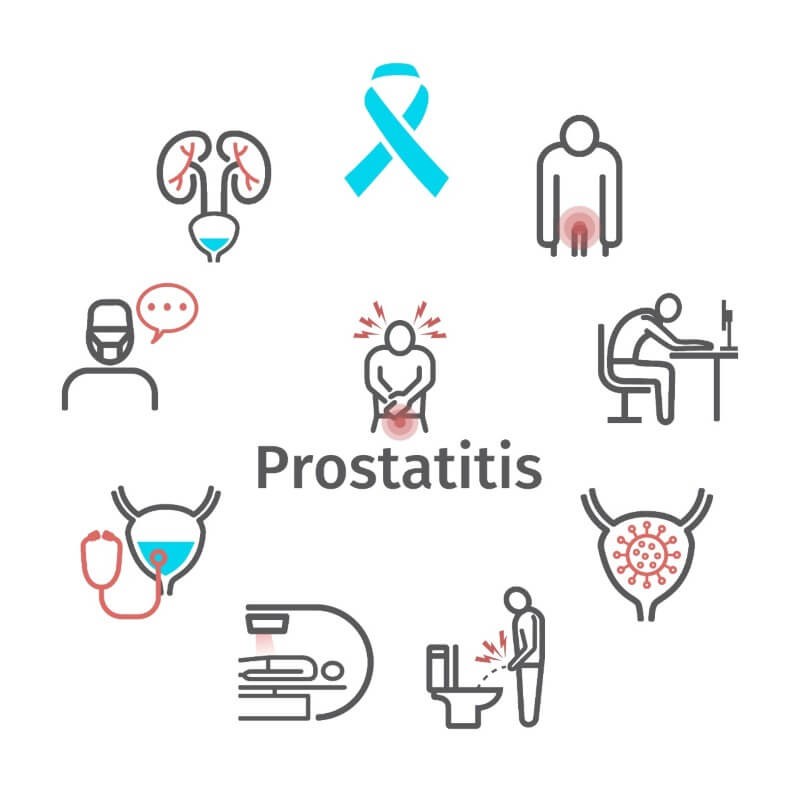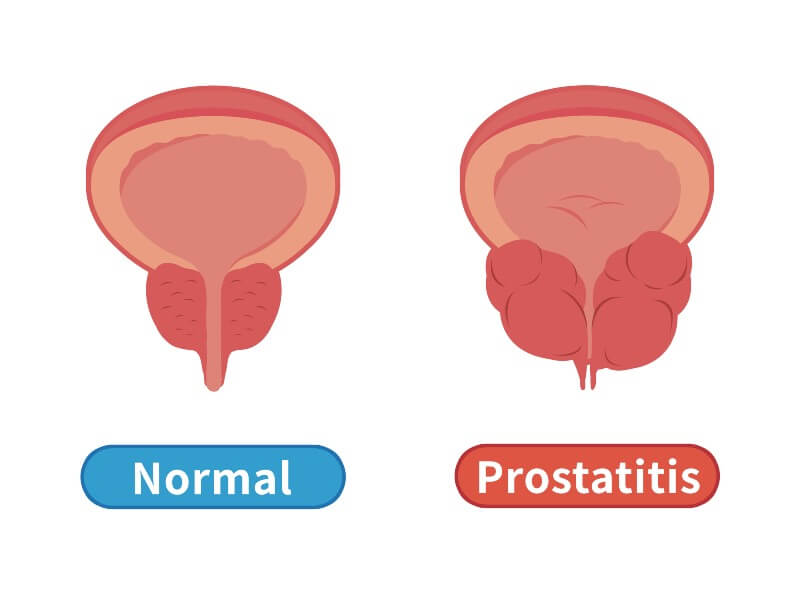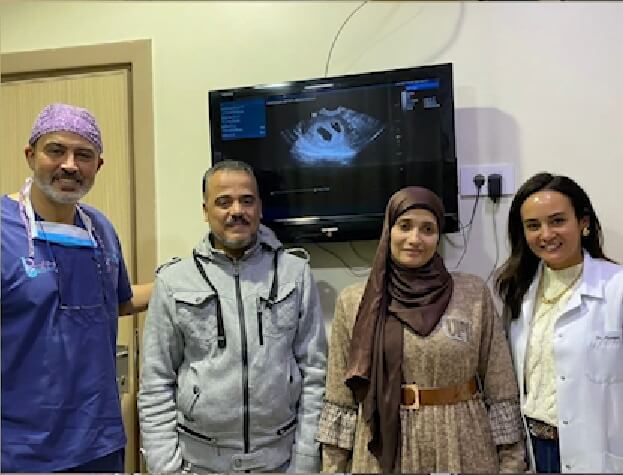Prostatitis is common and means swelling and inflammation of the prostate gland. It is often painful but sometimes men suffering from prostatitis have no symptoms at all and the finding is coincidental. Symptoms of prostatitis are pain in penis, lower abdomen and back, a continues peeing urgency, blood in urine or semen, not being able to urinate, painful ejaculation, fatigue, a feeling of general malaise with or without fever but sometimes prostatitis can occur with no symptoms of prostatitis at all.
What is the Prostate?
The prostate is a male gland between the bladder and penis. The urethra that transports urine from the bladder before entering the penis goes through the prostate gland.
The prostate produces the seminal fluid. This liquid nourishes and transports sperm cells. The prostate produces most of the ejaculation fluid.

Prostatitis Symptoms
The symptoms of prostatitis vary greatly in patients. Chronic prostatitis is more difficult to treat than the acute form. Prostatitis is considered chronic if it persists for more than 3 months and is sometimes difficult to treat. it may flare up after seemingly having healed after taking antibiotics The acute form is easily treated with antibiotic and its initial onset can be more severe than chronic prostatitis.
Prostatitis symptoms;
- Painful, difficult or frequent urination.
- Blood in the urine.
- Fever, chills.
- General feeling of malaise and fatigue.
- Discharge from the urethra.
- Painful ejaculation or Erectile dysfunction (ED).
- Feeling pain in the rectum
What causes prostatitis?
There may be no obvious cause of prostatitis symptoms but sometimes there is a clear reason for the onset of prostatitis symptoms.
Most common causes of prostatitis:
- Some viral or bacterial infection.
- Frequent exposure to stress
- Neuritis due to diabetes
- Pelvic injuries
- Urinary Tract infections
- A medical procedure for which it was necessary to place a urinary catheter
- Sexually transmitted diseases
Prostatitis diagnosis
There are several methods of diagnosing prostatitis, which is used depends on the symptoms and their severity. The method used also depends greatly on the hospital or clinic visited and the available diagnostic means they have but prostatitis is mainly a clinical diagnosis!
- Taking a detailed history of the patient
- Physical examination: The penis and testes are examined and if the doctor thinks it will add diagnostic value, a rectal examination can be done to evaluate the size and the amount of pain in the prostate.
- Perform a cystoscopy examination: Your doctor passes a flexible tube with a lens into the bladder to evaluate possible causes of prostatitis if a suspected area is found, your doctor may take a small sample (biopsy) for pathological examination.
- A CT scan can take pictures of the shape and size of the prostate and give an idea as to what the cause of inflammation could be
- An ultrasound examination can show the form and size of the prostate gland and can also show us the bladder before and after urination confirming if there is difficulty completely emptying the bladder which increases the risk of UTI and with-it prostatitis.
- Blood tests can confirm there is a bacterial or viral infection
- Conduct a prostate fluid test which includes doing a urine analysis and semen analysis.
Prostatitis treatment
Prostatitis treatment depends on the symptoms, possible causes and severity of discomfort or pain.
Symptoms of prostatitis vary depending on the main cause of inflammation
Medication for prostatitis
- Antibiotics which are the most common treatment for symptoms of prostatitis are chosen based on the type of bacteria that causes the infection and the severity of the symptoms. If the symptoms are severe oral antibiotics may not be enough and intravenous antibiotics are started with or without oral continuation.
- Alpha receptor blockers have been known to improve urinary voiding problems to reduce urinary tract infections and improve prostatitis symptoms.
- Non-Steroidal Anti-Inflammatory Drugs (NSAIDs) can help to relieve pain and reduce fever.
Prostatitis treatment by Surgery
Surgery is an uncommon and last resource in the treatment of mainly chronic prostatitis. Transurethral Resection of the Prostate (TURP)is a procedure for prostatitis treatment. A resectoscope is inserted through the urethra and excess (swollen) prostate tissue is removed to improve urinary outflow.
Lifestyle changes
- Avoid extreme stress
- A healthy diet rich in vitamins and nutrients is beneficial to overall health
- Eat leafy vegetables and fruits they improve the blood circulation
- Exercising stimulates the blood circulation, enhancing the arterial blood flow.






